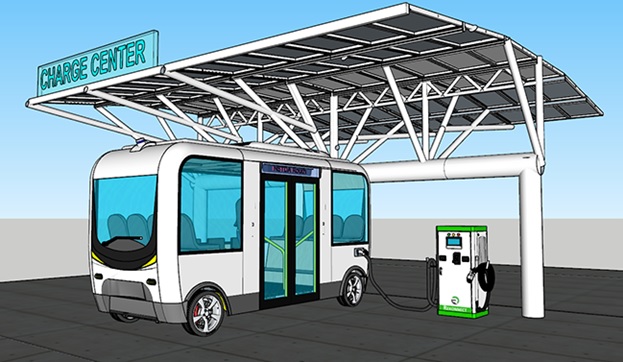Autonomous vehicle (AV) represents the future of mobility as it improves road safety, reduces emissions and congestion, and provides fuel reduction. To capitalize on this trend, one of NSTDA research focus is dedicated to AV development. NSTDA, in collaboration with Siri Ventures and the Department of Science Service, has successfully created a 6-seat self-driving golf cart prototype. The agency recently formed a partnership with Panus Assembly - a leading manufacturer of heavy transportation equipment including trucks, trailers and container vehicles - to develop an AV minibus with research funding provided by the Program Management Unit for Competitiveness (PMUC).

Dr. Sutee Olarnrithinun, a member of Intelligent Technology for Mobility Research Team at NSTDA Rail and Modern Transports Research Center, revealed details of the new project. With the success of self-driving golf cart, the research team is ready to embark on a new venture to develop a level-3 AV. The level 3 is designated to a vehicle that performs driving tasks but requires human override. The 15-seat AV bus will be powered by electricity with the maximum speed of 35 km/hr.
The project consists of two main components: the electric vehicle (EV) platform and the AV system. The tasks of EV platform development include the automotive body structure development, the selection of equipment, the design of vehicle control and the study of vehicle dynamics, whereas the AV system involves sensing technologies and control algorithms. Computer-Aided Engineering (CAE) is employed to design and support the engineering process, allowing tests and simulations to be performed prior to the creation of a physical prototype.

Dr. Sutee expected the prototype to be ready in 2023, after which it will be tested in the closed environment of Thailand Science Park for performance evaluation and the EV platform and AV system improvement.
As the automotive industry has long been a vital contributor to the Thai economy, embracing the AV trend will help Thailand maintain its competitiveness of this important sector.

